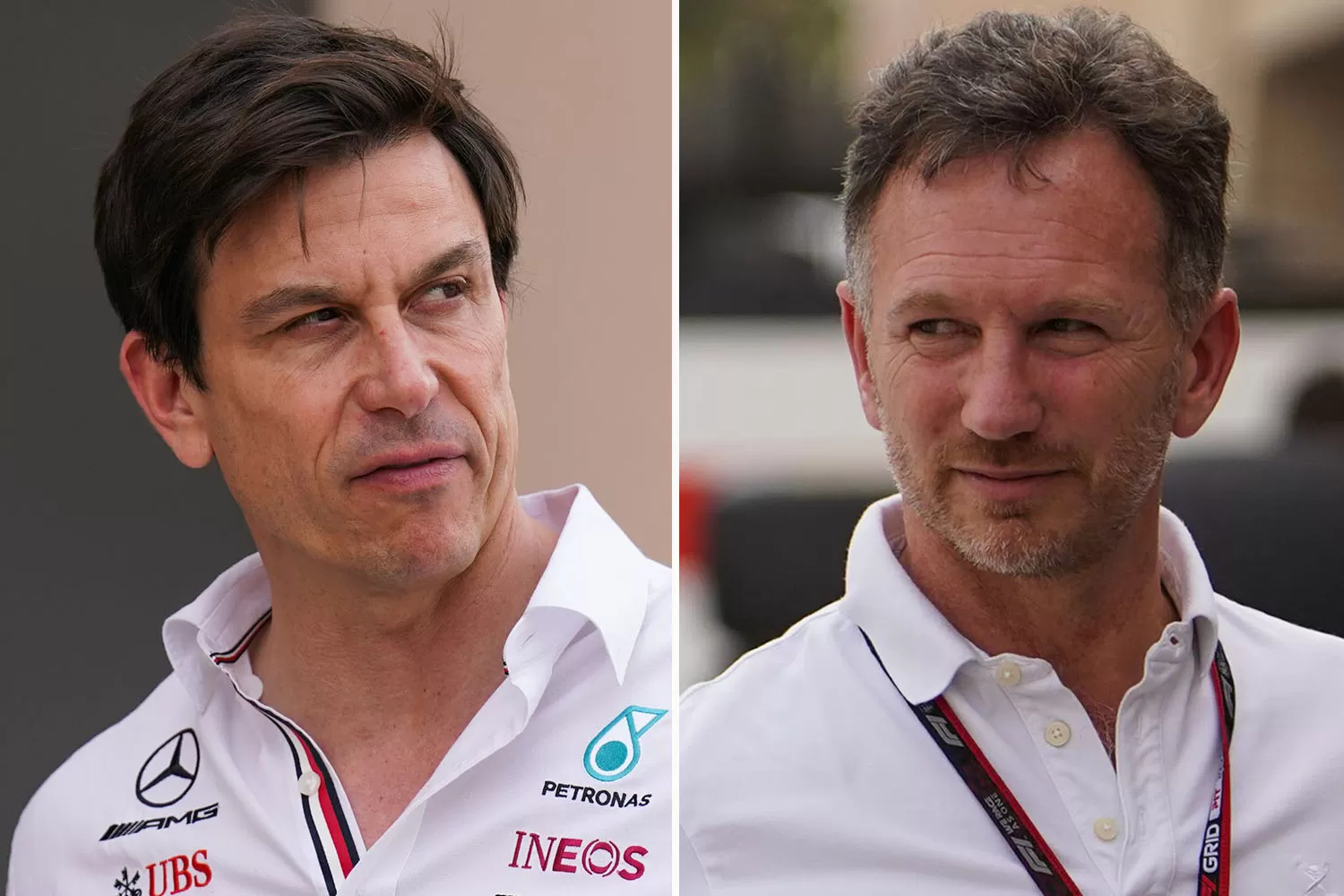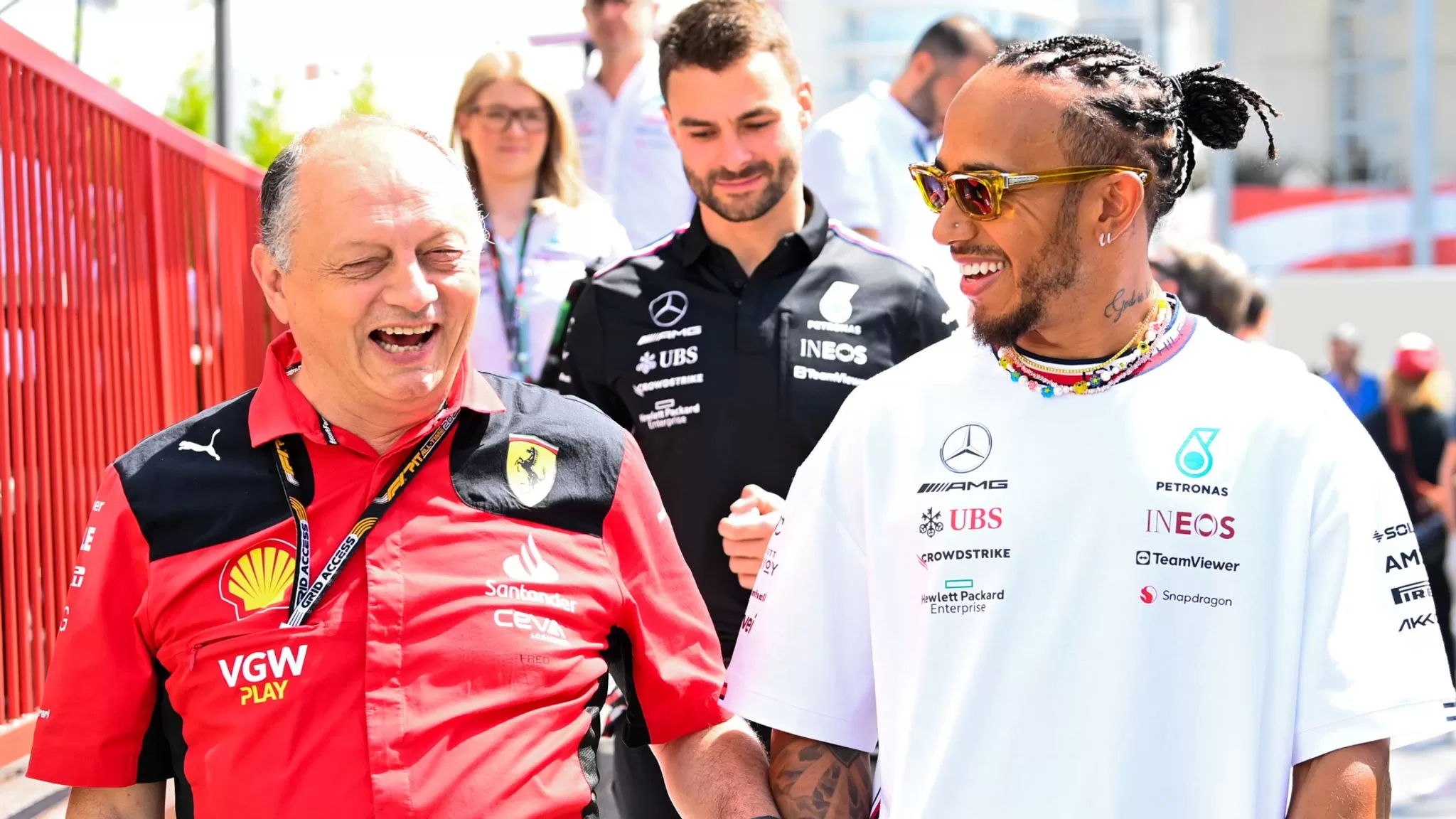The Formula 1 world has once again been ignited by the heated rivalry between Christian Horner, team principal of Red Bull Racing, and his Mercedes counterpart, Toto Wolff.
This time, the spark comes from Horner’s comments surrounding Lewis Hamilton’s highly publicized departure from Mercedes to Ferrari, a move that has left the motorsport community abuzz with speculation and intrigue.
Horner’s remarks, suggesting that Toto Wolff was kept in the dark about Hamilton’s decision until the very last moment, have added fuel to an already simmering rivalry.
The departure of Hamilton, a seven-time world champion, marks a seismic shift in the Formula 1 landscape, raising questions about Mercedes’ internal dynamics and their ability to maintain competitiveness in the seasons to come.

Horner didn’t hold back when addressing Hamilton’s departure, implying that the lack of competitiveness from Mercedes over the past three years played a significant role. “Mercedes had three very uncompetitive years by their own standards,” Horner said. “Lewis has decided to leave the team; perhaps he doesn’t believe in the future presented to him. When you are not delivering as a team, the less you say, the better it is to focus on resolving your own issues.” These sharp words not only targeted Mercedes’ recent struggles but also hinted at a deeper disconnect between Wolff and Hamilton.

Toto Wolff’s reaction to Hamilton’s decision was equally telling. Reports suggest Wolff only learned of the move through an unexpected phone call from Carlos Sainz Sr., father of the Ferrari driver Hamilton is replacing. Wolff’s comments during interviews revealed the frustration of being blindsided by the decision. “I heard the bells ringing two weeks before it was announced,” Wolff stated. “It’s not the way we operate, but it happened. It’s clear there were things I wasn’t privy to.”

Hamilton’s departure was not entirely unforeseen, given the turbulence within Mercedes in recent years. The 2024 season, though promising on paper, exposed deeper issues in the Brackley-based squad. Despite breaking his winless streak with a victory in 2024, Hamilton’s frustrations with the team’s direction and the experimental nature of his car setups were evident. Radio messages during races like Canada and Baku highlighted his dissatisfaction.

Moreover, Hamilton had previously voiced concerns about the controversial “zero-pod” design philosophy that Mercedes stubbornly pursued. While his criticisms were initially dismissed, the engineering team later acknowledged their errors. Hamilton himself noted that engineers apologized for not heeding his warnings earlier, a sentiment that underscores the strained relationship between driver and team.
The transition to Ferrari represents a new chapter for Hamilton, reminiscent of his bold move from McLaren to Mercedes in 2013. Joining Ferrari in 2025, just ahead of a new regulatory era, aligns with his reputation for making calculated career decisions. Ferrari’s team principal, Frédéric Vasseur, confirmed that discussions with Hamilton had been ongoing for over a year, describing the negotiations as “easy” given Hamilton’s long-standing admiration for Ferrari.
However, integrating into Ferrari’s unique ecosystem will be no small feat for Hamilton. The Brit has already started learning Italian and has been actively engaging with the team at Maranello to ensure a smooth transition. Yet, adapting to Ferrari’s culture and establishing himself within a team built around Charles Leclerc could pose challenges for the veteran driver.
On the flip side, Mercedes faces its own trials as it seeks to recover from Hamilton’s departure. The team is banking on its next-generation talent, Andrea Kimi Antonelli, who is set to debut in 2025. Touted as a future superstar, Antonelli represents a shift in Mercedes’ approach to nurturing talent directly within the main team, bypassing their traditional feeder system.
The brewing tension between Horner and Wolff adds another layer of drama to an already intense narrative. With Hamilton now at Ferrari and Mercedes eager to rebuild, the 2025 season promises not only on-track fireworks but also a continuation of the off-track battles that have defined the Horner-Wolff rivalry.
As fans eagerly await the next chapter, one question lingers: was Wolff truly the last to know about Hamilton’s departure, and how will this impact their dynamic as fierce rivals in the seasons to come? One thing is certain—Formula 1 is gearing up for an electrifying future, both on and off the track.





